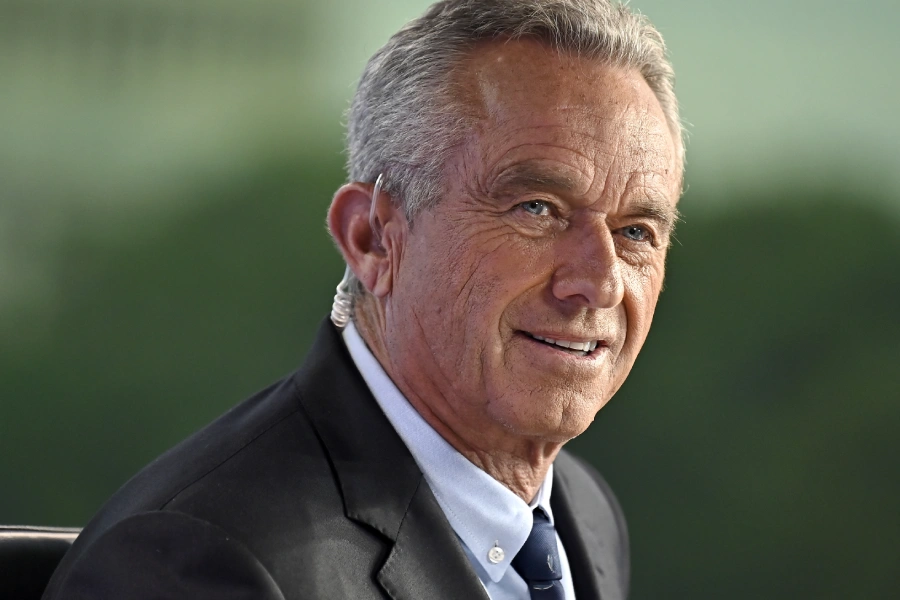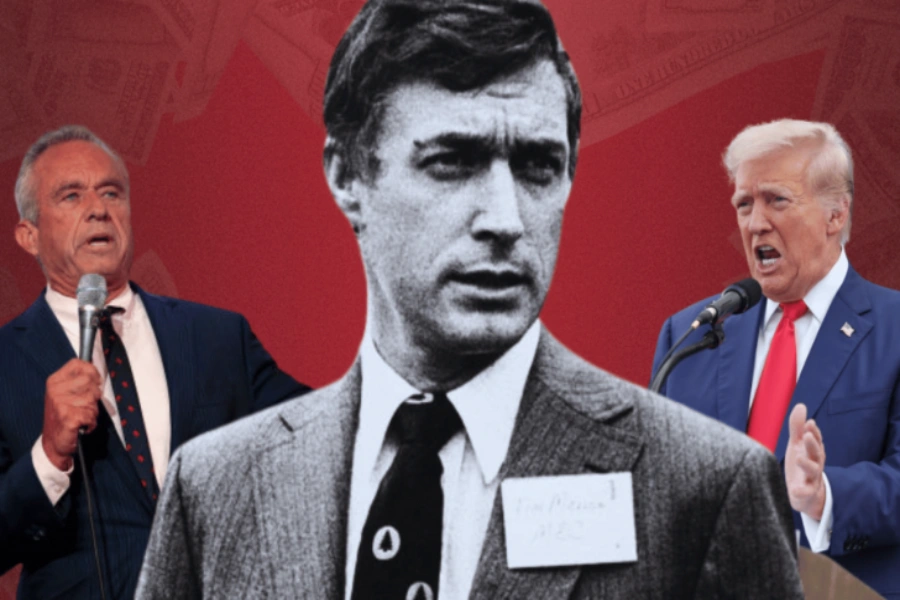In a move that has stunned Washington D.C. and reignited national debate over the role of private wealth in public governance, Timothy Mellon, a reclusive billionaire and heir to the Mellon banking dynasty, was identified as the mysterious donor behind a $130 million contribution to the Pentagon during the ongoing U.S. government shutdown.
The donation, announced by President Donald Trump, was described as an act of “patriotism” to help pay U.S. troops whose salaries had been delayed.
But what seemed like generosity quickly turned into a constitutional controversy. Legal experts warn the payment might violate the Antideficiency Act, a federal law prohibiting government agencies from spending funds not appropriated by Congress.
This unprecedented case raises profound questions about money, law, and power in the American democracy and places Timothy Mellon at the center of a political and legal storm unlike any in recent history.

Who Is Timothy Mellon? The Reclusive Power Broker Behind the Fortune
Timothy Mellon, 82, is the grandson of Andrew W. Mellon, former U.S. Treasury Secretary and one of America’s most influential financiers.
Known for his privacy and deep pockets, Timothy has been a major Republican donor, contributing over $165 million to conservative causes and pro-Trump super PACs during the 2024 election cycle.
Despite his low public profile, his influence behind closed doors is undeniable — shaping political narratives around “self-made wealth, fiscal independence, and American nationalism.”
The $130 Million Donation: Facts and Figures
| Category | Details |
|---|---|
| Donor | Timothy Mellon |
| Amount | $130 million |
| Recipient | U.S. Department of Defense (Pentagon) |
| Purpose | To pay active-duty military personnel during the government shutdown |
| Announcement Date | October 24, 2025 |
| Announced By | President Donald Trump |
| Legal Basis Claimed | “General gift acceptance authority” (Pentagon) |
| Potential Legal Issue | Possible violation of the Antideficiency Act |
| Location Focus | Washington D.C., USA |
Political Context: Shutdown, Power, and Public Perception
The U.S. government shutdown of 2025 has been one of the longest in modern history, halting critical public services and freezing salaries for over 1.3 million active-duty troops.
President Trump’s administration hailed Mellon’s donation as an act of “private-sector patriotism.”
However, critics argue it blurs the line between private philanthropy and public governance, effectively allowing a billionaire to substitute Congress’s fiscal authority with his personal checkbook.
For Washington D.C., this moment reflects a broader transformation in U.S. politics — where private capital increasingly fills public gaps, and donors like Mellon can influence national policy without holding public office.
Legal Dimensions: The Antideficiency Act and Federal Accountability
The Antideficiency Act (31 U.S.C. § 1341) strictly prohibits government agencies from accepting or spending unappropriated funds.
Legal scholars from Georgetown Law and the Congressional Research Service note that the Pentagon’s acceptance of Mellon’s donation could set a dangerous precedent, allowing wealthy individuals to bypass Congress’s “power of the purse.”
If challenged in court, this could evolve into one of the most consequential constitutional disputes of the decade — testing how far executive agencies can go in times of crisis, and how private citizens may (or may not) supplement government funding.

Economic and Ethical Analysis: Symbolism Over Substance
While the donation’s $130 million headline figure appears massive, divided among all active-duty personnel it equals roughly $100 per soldier — a fraction of the annual defense budget.
Economically, its impact is symbolic rather than functional.
Ethically, however, it raises questions: Should national defense ever rely on private money? Does this redefine patriotism in an era of billionaire influence and public austerity?
Cultural and Social Perception in Washington D.C.
In Washington D.C., reactions are divided:
-
Supporters hail Mellon as a “modern-day patriot” willing to act where Congress has failed.
-
Critics see him as an unelected power broker, using wealth to reinforce partisan loyalty.
The public debate has extended far beyond politics — touching on morality, civic duty, and democratic fairness in the age of extreme inequality.
Broader Implications for U.S. Governance
This controversy may lead Congress to revisit the Gift Acceptance Statute and tighten regulations governing private contributions to federal agencies.
Future legal reforms could redefine what counts as public service vs. political influence, shaping how the U.S. manages crisis funding, military budgets, and donor transparency.
As one Georgetown professor noted:
“Timothy Mellon’s check didn’t just pay soldiers — it challenged the architecture of constitutional spending.”
Conclusion
Timothy Mellon’s $130 million donation may enter history as more than an act of generosity — it could become a test case for American democracy itself.
It exposes the fragile boundaries between private wealth and public duty, between philanthropy and policy, and between patriotism and power.
Washington D.C. now stands as both the stage and the symbol of this unfolding constitutional drama.
FAQ
What did Timothy Mellon donate and why?
He donated $130 million to the Pentagon during the 2025 government shutdown to help pay U.S. military personnel. Supporters call it patriotic; critics question its legality.
Is Timothy Mellon’s donation legal?
Possibly not. Legal experts suggest it may violate the Antideficiency Act, which forbids federal agencies from using funds not approved by Congress.
Who is Timothy Mellon?
A billionaire heir to the Mellon banking and steel fortune, major Republican donor, and long-time financial supporter of Donald Trump.
What is the Antideficiency Act?
A federal law (31 U.S.C. § 1341) ensuring that no money is spent by federal agencies without Congressional authorization.
What are the political implications of this donation?
It highlights growing concerns about billionaire influence in U.S. policy, donor transparency, and how private funds can affect government decision-making during crises.
Could this change future laws?
Yes. Lawmakers are already discussing reforms to limit or regulate private donations to government functions, especially during shutdowns.

